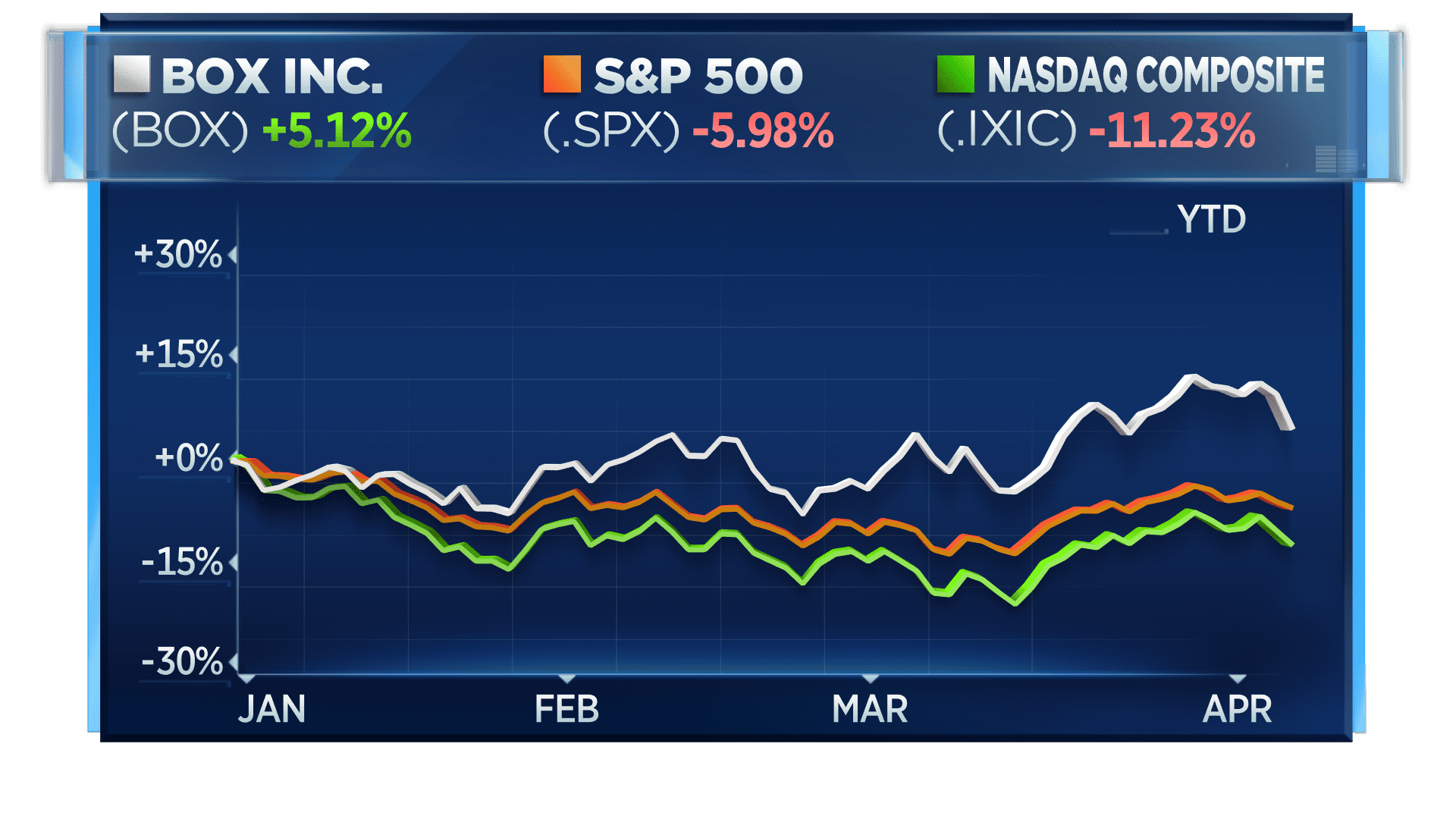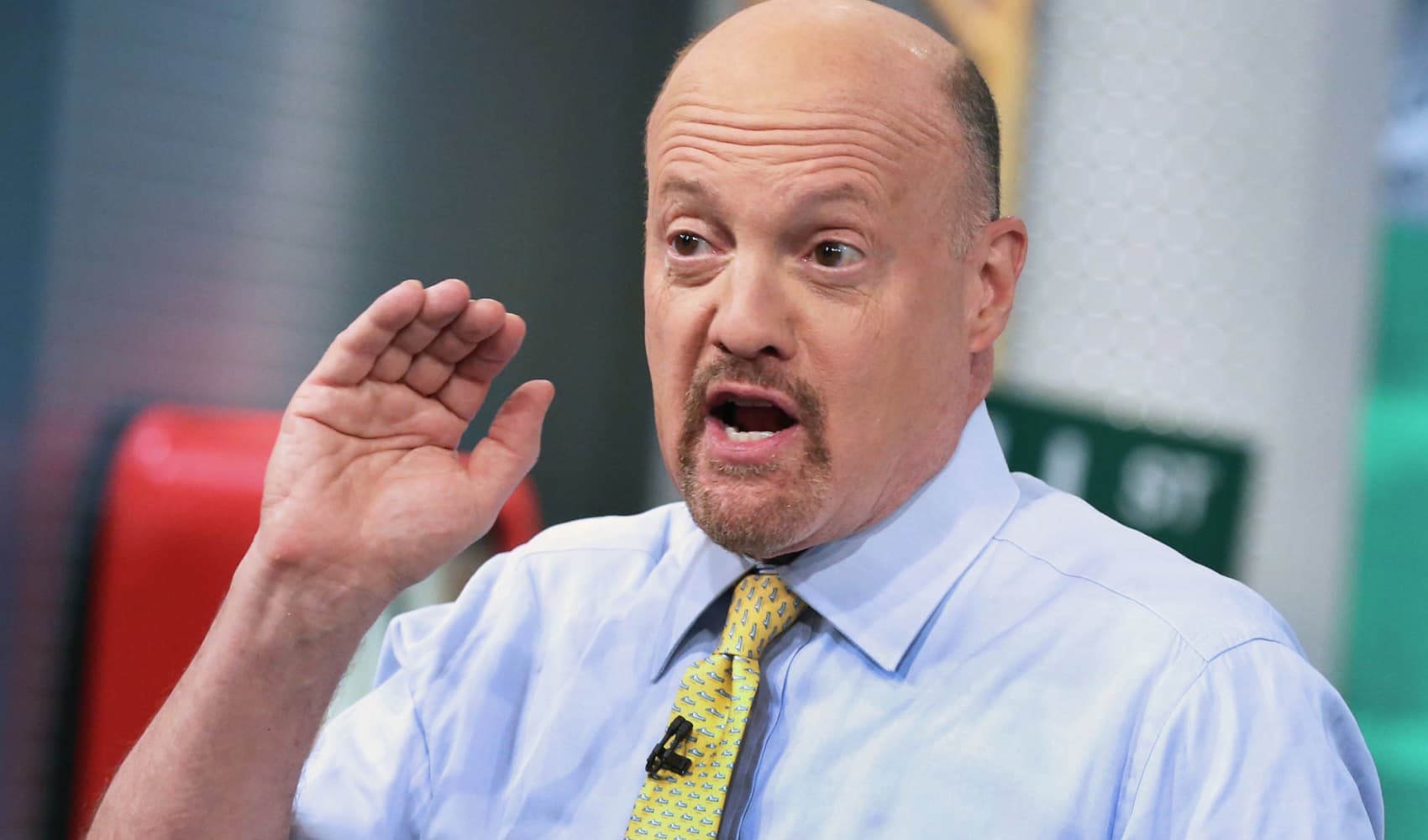
- Box has been on a roller coaster since its 2015 IPO, including a protracted battle with activist investor Starboard Value.
- Revenue growth finally picked up in fiscal 2022 after slowing for eight straight years.
- While cloud stocks have gotten crushed in the first few months of the year, Box is trading near a record.

In this weekly series, CNBC takes a look at companies that made the inaugural Disruptor 50 list, 10 years later.
At age 37, Aaron Levie has been at the same job for almost half his life. He's the CEO of collaboration software vendor Box, a business he started as a sophomore at the University of Southern California.
Get a weekly recap of the latest San Francisco Bay Area housing news. Sign up for NBC Bay Area’s Housing Deconstructed newsletter.
Far from its days as a fledgling dorm room start-up, Box now employs more than 2,100 people and generates close to $900 million in annual revenue. Levie, despite his relative youth, is a grizzled veteran of cloud software, an industry that consisted of Salesforce and little else at the time Box was getting started.
Levie is also a seasoned vet when it comes to Wall Street drama, and he has the scars to prove it.
In the decade since Box made CNBC's very first Disruptor 50 list, the company has reckoned with a delayed IPO to rightsize its economics, an extended stretch of stock underperformance and last year had to manage through a heated battle with activist investor Starboard Value, which was demanding the company either find a buyer or oust its CEO.
Money Report
Levie kept his job, and an independent Box was ultimately victorious in its proxy fight with Starboard. At long last, investors seem to be liking what they see.
The company recently surpassed its all-time high stock price from 2018, and Box has turned out to be a safe haven during the tech market's nosedive to start 2022. Among the 76 companies in the Bessemer Venture Partners Cloud Index, Box is the fourth-best performer and one of only seven members that's up so far this year.
"It's a weird claim to fame," Levie said in a recent interview. "I've literally come around to the other side of this thing, which is having a healthy balance of growth and profit is actually a really good thing."

Box shares have climbed over 5% this year through Wednesday's close, while the Nasdaq has dropped more than 11% over that stretch. The stock rallied on March 17, after Box issued a forecast at its analyst day that called for fiscal 2025 revenue growth of 15% to 17%, alongside an operating margin of 25% to 28%.
Analysts at JMP said in a report that the updated guidance "reflected the company's strong execution, leadership in a large market, and prospects for continued financial improvement."
Even with the recent momentum, this isn't where Levie thought he would be, given the hype around his company 10 years ago, when it was a scorching Silicon Valley start-up. Its market cap today is just shy of $4 billion, up from about $1.7 billion at the time of its 2015 IPO. Venture investors valued the company at $2 billion in 2013, the year Inc. Magazine put Levie on the cover as its entrepreneur of the year.
Compare that to some of the top names that joined Box on the first Disruptor 50 list. Airbnb is worth $106 billion, Shopify is at $83 billion, Square (now Block) is at $75 billion and Atlassian is worth $73 billion. Also on the list that year was Box rival Dropbox, which has struggled since its 2018 IPO and now has a market cap of under $9 billion.
"Categorically, we believe we're undervalued," Levie said. To prove it, the company has been buying back shares and, at its analyst day, increased its repurchase plan by $150 million over the next year.

"That's our message," said Levie. "We think the shares are very attractive for us to own" and that "we have substantial upside going forward."
Some of that potential upside comes from revenue growth, which is finally accelerating. Revenue in the fiscal year that ended in January increased 13%, up from 11% the prior year. Before that, growth had slowed for eight consecutive years, as improving collaboration and file storage tools were getting baked into low-cost productivity suites from Google and Microsoft.
To reach growth of up to 17% in three years, Box is counting on a strategic shift that involves providing more stuff to its customers.
When Microsoft was a punching bag
In Box's early days, the company played the role of upstart taking a direct shot at Microsoft, which was then an easy target. The software giant had yet to go all in on cloud and its SharePoint product was a clunky collaboration tool that didn't work across the array of mobile devices consumers were adopting.
Box's app made it easy for people to store and share documents in the cloud and access them from anywhere. It was fun while the venture capitalists were subsidizing growth. But competition was everywhere, leaving Box with no pricing power.
When Box's IPO prospectus landed in March 2014, investors saw signs of a flawed business model. Operating costs in the most recent quarter were almost twice as high as revenue. So Box delayed its offering, raised $150 million in private financing, and 10 months later hit the market with its financials pointing in a more sustainable direction.
In subsequent years, Box invested heavily to move from product to platform. Instead of selling collaboration software, it's now offering what it calls the content cloud — a full suite of services for storing and sharing documents, managing workflow, securing files and integrating third-party tools. In early 2021, Box spent $55 million on start-up SignRequest, adding e-signature technology across its cloud.
"A decade ago all we talked about was collaboration," Levie said. Now, he said, the company is "building out a complete suite as opposed to one capability that was driving all of the growth."
Of its 100,000-plus customers, Box says 120 are spending at least $1 million a year. Within its client base, the company sees a "7x user expansion opportunity" as its products become relevant to more people in the workplace, according to to its analyst day presentation.
In the world of software as a service, or SaaS, investors have heard plenty of companies tout the "land and expand" model, selling to a small team of developers or marketers and then using that footprint to get wider adoption inside an organization.
Box made it work with collaboration, but it has a long way to go to prove that its platform can be a key piece in the enterprise stack of the future. While the stock has outperformed of late, it still trades at about four times forward revenue, putting it in the bottom fifth of the BVP cloud Index.
The good news for Levie is that the activists are off his back, and metrics are improving where it matters most: free cash flow jumped 41% in 2022 to to $170.2 million.
"I would tell all founders to get more focused on cash flow," Levie said.
With two little kids at home, Levie doesn't have much time anymore to provide coaching to young entrepreneurs who are trying to navigate the current market choppiness. But he has learned some things going through the types of battles that many tech entrepreneurs have thus far avoided.
And if he has any sage advice, it's this:
"Silicon Valley has ebbs and flows," Levie said. Always look at long-term economics, and "how you're going to generate cash flow in the future," he added, "because that future might come faster than you think."
Sign up for our weekly, original newsletter that goes beyond the annual Disruptor 50 list, offering a closer look at companies like Box before they go public, and founders like Levie who continue to innovate across every sector of the economy.






